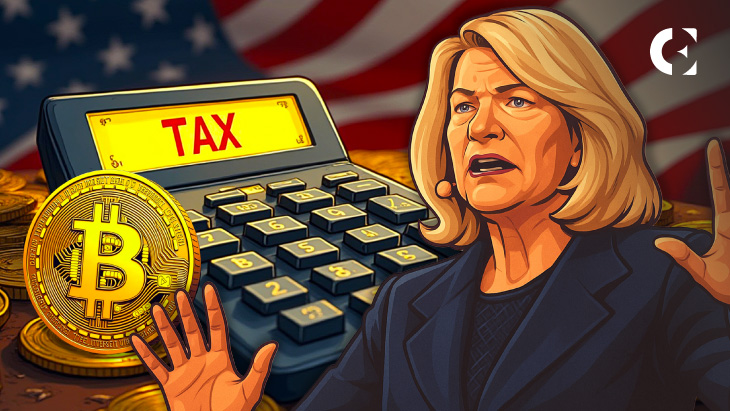- Lummis seeks urgent crypto tax reform to prevent double taxation on miners and DeFi users.
- 2021 law’s “broker” definition draws criticism for demanding unreachable user data.
- Congress weighs crypto bills as Lummis pushes for reconciliation to ease compliance rules.
U.S. Senator Cynthia Lummis is urging Congress to revise current tax policies affecting Bitcoin and other digital assets, warning that the existing framework imposes unfair burdens on miners, developers, and decentralized finance (DeFi) participants.
In a statement posted on X, the Wyoming lawmaker cited specific flaws in the classification and reporting standards for crypto-related activities, which she argues are obstructing innovation and creating significant compliance challenges across the American crypto sector.
Lummis Highlights “Double Taxation” for Miners and Unfair DeFi Rules
Among the major issues raised, Senator Lummis pointed to the treatment of Bitcoin miners under current tax regulations. She argued that miners are effectively subject to double taxation—first when they receive block rewards and again when they sell their holdings. This approach, she warned, places an undue financial burden on the very participants who work to maintain and secure the blockchain’s infrastructure.
The same concern extends to DeFi users, where routine on-chain interactions can trigger multiple taxable events through various smart contract executions, even in cases where users have not realized any actual profit. Lummis highlighted that the current structure can create tax liabilities without corresponding capital gains, which severely complicates tax reporting.
Related: No Crypto Tax? White House ‘Czar’ Shoots Down Transaction Fee
The Core Issue: A Flawed “Broker” Definition in 2021 Infrastructure Law
Lummis’s remarks appear to target the IRS regulations that stemmed from the Infrastructure Investment and Jobs Act passed in 2021. That legislation introduced an exceptionally broad definition of a crypto “broker,” which could be interpreted to include miners, software developers, and node operators.
Under the law, these participants are required to report sensitive user information, such as names and transaction data—details that, due to the pseudonymous and decentralized nature of their roles, they often do not collect or have access to. Industry stakeholders have long voiced concerns that these reporting demands are technologically unworkable.
A Path Forward: Lummis Pushes for a Legislative Fix
To address these challenges, Senator Lummis is calling for the use of the reconciliation process, a legislative procedure that allows the Senate to amend tax-related laws with a simple majority vote. She advocated for a key fix: narrowing the definition of a crypto “broker” to exclude entities that do not perform direct intermediary services or have access to user data.
Related: Senators Lummis & Moreno New Proposal Could Mean Firms Only Pay Crypto Tax on Realized Gains
Her push comes as Congress continues to consider other major legislation for the digital asset space, with the GENIUS Act scheduled for a cloture vote this week and the CLARITY Act also progressing through the legislative process.
Disclaimer: The information presented in this article is for informational and educational purposes only. The article does not constitute financial advice or advice of any kind. Coin Edition is not responsible for any losses incurred as a result of the utilization of content, products, or services mentioned. Readers are advised to exercise caution before taking any action related to the company.







